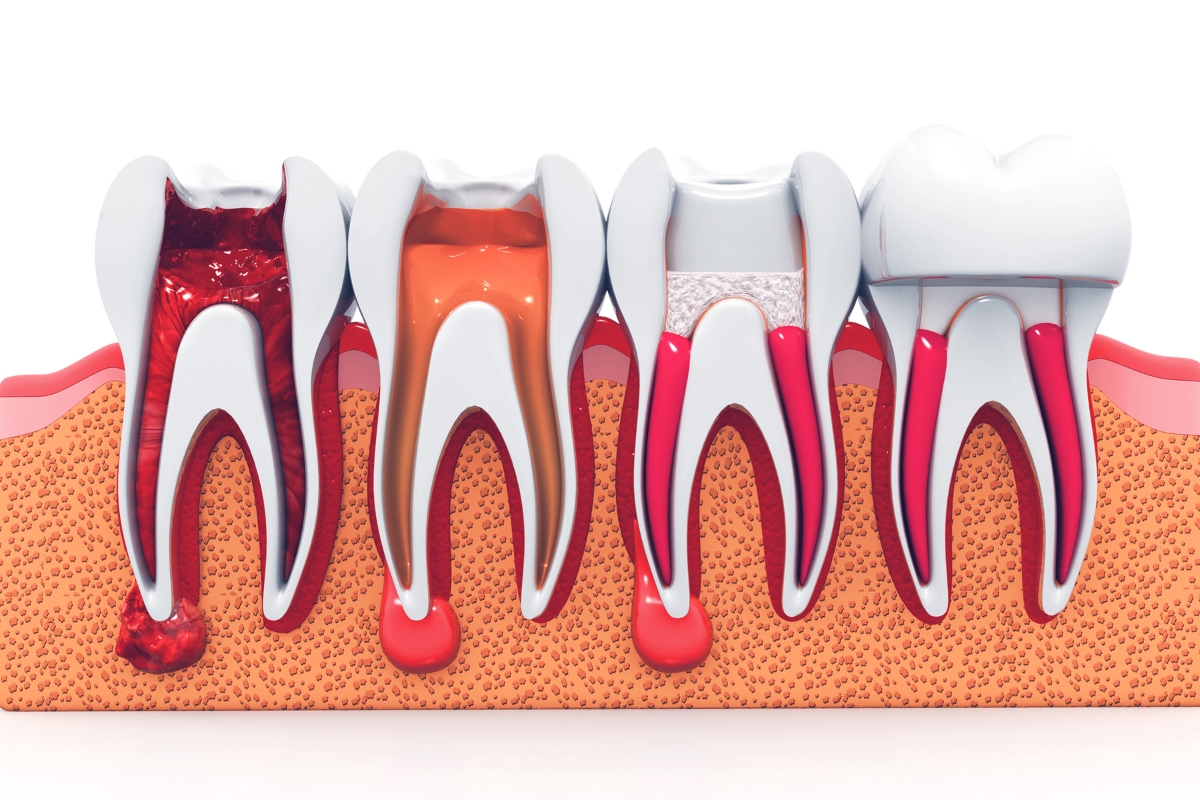Are you afraid of getting a root canal? You’re not alone. Root canals have been shrouded in mystery and misconceptions for years, leading many to avoid this essential dental treatment. But fear not! We’re here to dispel the most common myths about root canals and set your mind at ease. From pain levels to procedure times, we’ll debunk everything you thought you knew about root canals and help you make an informed decision about your dental health. So sit back, relax, and get ready to learn the truth behind these four common myths about root canals!
What is Root Canal?
Root canal treatment is a dental procedure that involves removing the infected or damaged pulp from the inside of a tooth. The pulp is made up of nerves, blood vessels, and connective tissue that helps to nourish the tooth. When it becomes infected or inflamed due to injury or decay, it can cause pain and even lead to an abscess.
During a root canal procedure, your dentist will numb the area around the affected tooth and make a small hole in it to access the pulp chamber. They will then remove any damaged or infected tissue before cleaning out the space with special instruments.
Once all of the diseased tissue has been removed, your dentist will fill in the space with a material called gutta-percha to seal off the root canals. In some cases, they may also place a crown on the treated tooth for added protection.
While many people dread getting root canals due to fear of pain or lengthy procedures, these myths are often unfounded. With modern anesthesia techniques and advanced technology like rotary endodontic tools, most patients experience minimal discomfort during their treatment and can return to their normal activities within just a few days.
Source: Teeth Talk Girl
Myth 1: Root Canal Treatment Is Painful.
One of the most common misconceptions about root canals is that they are incredibly painful. However, this myth couldn’t be further from the truth. With modern technology and advancements in dental practices, undergoing a root canal is now a relatively painless procedure.
During a root canal treatment, your dentist will use local anesthesia to numb the area around the tooth being treated. This ensures that any discomfort or pain during the procedure is minimized as much as possible.
Additionally, many people who undergo root canals report feeling little to no pain during or after their treatment. In fact, most patients only experience mild discomfort for a few days following their procedure before returning to normal activities.
Therefore, if you’ve been avoiding getting a necessary root canal due to fear of pain, it’s time to put those fears aside and prioritize your dental health. Remember that taking care of any issues early on can prevent more serious problems down the road and ensure optimal oral health in the long run.
Myth #2: Root Canals Are Lengthy Procedures
One of the biggest misconceptions about root canals is that they are lengthy procedures. While it is true that a root canal may take longer than a regular dental filling, it usually takes only one or two visits to complete the entire process.
During the first visit, your dentist will examine and prepare your tooth for the procedure by removing any decayed tissue or bacteria from inside the tooth. They will then clean and shape the root canals before sealing them with a temporary filling.
At your second visit, which normally happens within one to two weeks after your initial appointment, your dentist will remove this temporary filling and replace it with a permanent crown or filling.
The entire process typically takes between 90 minutes to 2 hours depending on factors such as how many teeth need treatment, their location in the mouth, and whether there are any complications during surgery. However, thanks to advances in technology and techniques used by dentists today, most patients find root canals much quicker and easier than expected.
Myth 3: It’s Better To Pull a Tooth Than Have a Root Canal Treatment.
This is one of the most common myths about root canals, and it’s simply not true. Choosing to extract a tooth instead of getting a root canal could lead to several problems such as difficulty chewing, shifting teeth, and bone loss in your jaw.
When you remove a tooth, other teeth may shift into the gap that is left behind. This can cause misalignment which could result in more dental work down the line. Additionally, missing teeth can eventually lead to bone loss in your jaw making it difficult for dentists to place an implant if necessary.
Root canal therapy has come a long way over the years with advancements in technology making them quicker and easier procedures with minimal pain or discomfort involved. In fact, many patients who have undergone both procedures say they would choose another root canal over extracting their tooth any day!
So don’t be fooled by this myth! Root canals are safe, effective treatments that will help save your natural teeth while improving your overall oral health.
Myth #4: Crowns Cause Root Canals
Another common myth about root canals is that getting a dental crown causes the need for a root canal. While it’s true that crowns and root canals often go hand in hand, one doesn’t necessarily cause the other.
A dental crown is used to cover and protect a damaged or decayed tooth, while a root canal removes the infected or inflamed pulp from inside the tooth. These are two separate treatments that address different problems.
If you have a deep crack or cavity in your tooth that has reached the nerve, you may need both treatments. However, not all teeth with crowns require root canals.
In fact, many dentists recommend getting a crown after having a root canal to help strengthen and protect the weakened tooth. This preventative measure helps reduce future damage and decay to your treated tooth.
Root canal treatment is a safe and effective way to save a damaged or infected tooth. It is important to debunk these myths about root canals so that people can make informed decisions regarding their oral health. If you are experiencing dental pain or discomfort, don’t let fear hold you back from seeking the care you need. Talk to your dentist about your concerns and they will be happy to address any questions or anxieties you may have about root canal treatment. Remember, taking good care of your teeth and gums through regular brushing, flossing, and dental check-ups can help prevent the need for more invasive procedures like root canals in the first place.





